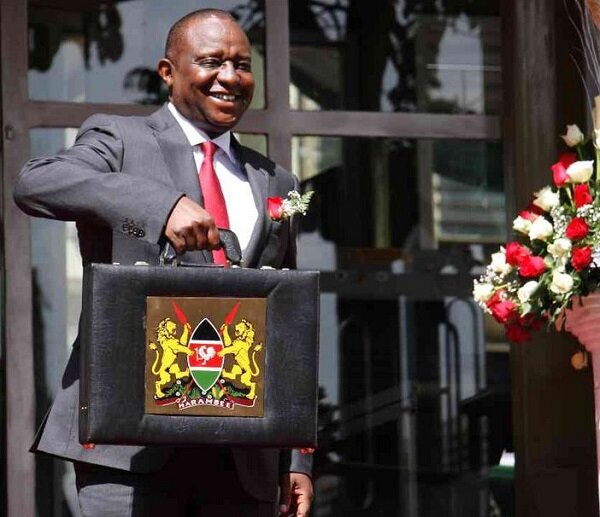CS Rotich details measures to finance Sh2.6tr budget
By O’brien Kimani
The government has outlined a raft of measures in a bid to raise resources to finance the 2.6 trillion shillings 2017/18 budget.
National Treasury Cabinet Secretary has told parliament that the budget will rely heavily on domestic resources saying the Kenya revenue authority will need to expand tax bracket to raise 1.7 trillion shillings.
The CS has also informed the national assembly that the government plans to spend 28 percent of the budget to fund development projects. This is however below the 30 percent threshold provided by law.
When he flashed the budget briefcase before a battery of local and foreign journalist the cabinet secretary in charge of National treasury knew one thing the eyes of the nation are on him. At 2.6 trillion shillings this is the most expensive budget in the history of the nation.
The government plans to spend 78 percent of the budget to finance recurrent expenditure while development will get less than 30 percent.
CS Henry Rotich says the Kenya Revenue Authority will have to burn the midnight oil strategizing on how to net more taxpayers while at same time raising collections.
The taxman is expected to raise 1.7 trillion shillings, while projects grants are expected to increase by 14.3%. The overall budget deficit will amount to 544 billion shillings. This will be raised through domestic and foreign loans.
The government plans to increase net domestic borrowing by 12.4% which is likely to put pressure on the domestic market at a time when credit to the private sector has taken a beating due to the interest rates cap law.
Rotich is urging politicians to exercise their political space prudently not to scare away investors who are expected to bring foreign direct investment to finance the activities of the government.
To smoothen operations of the devolved units, the national government has allocated more than twice the constitutional requirement (15%) in equitable share to county governments for 2017/18.
The cabinet secretary is further expected to publish new regulations on levies and rates charged by county governments to stop double taxation.





